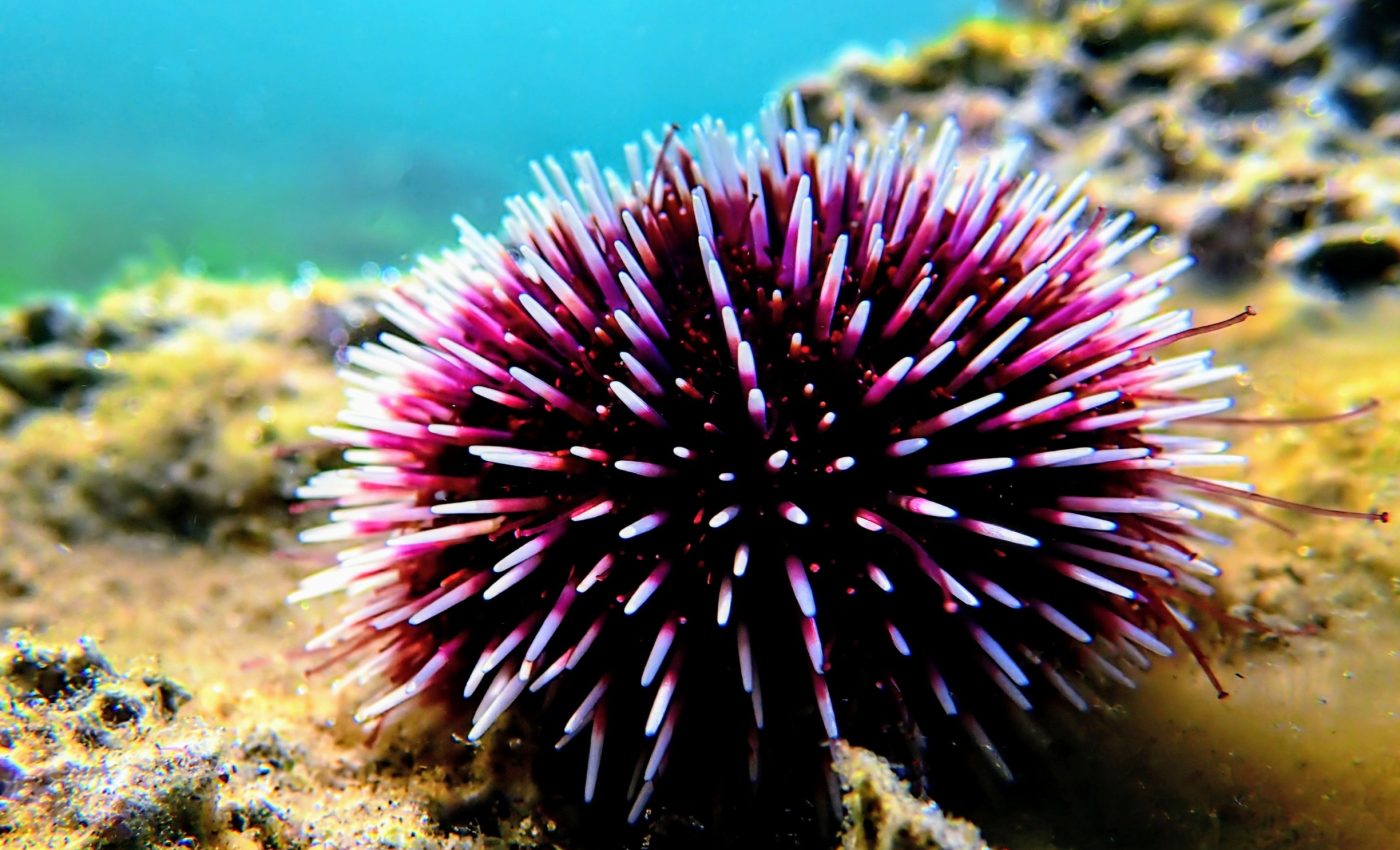
Sea urchins have some unexpected predators
Are lobsters the key predators of sea urchins? This is a widely accepted belief that has shaped marine conservation strategies for decades. But, new research suggests there might be a twist in the tale: Sharks, not lobsters, are the real predators of sea urchins.
Sharks feeding on sea urchins
A team of researchers, with the hope of understanding how lobsters prey on sea urchins, set up a camera at a lobster den. They placed sea urchins strategically inside the den only to find majority of them being devoured by sharks – not lobsters.
This unique study was published in Frontiers in Marine Science and surely turns the tables on well-established beliefs.
New perspective on sea urchin predators
So, what does this mean for our understanding of who is eating whom in our vast oceans? The study’s lead researcher from the University of Newcastle, Jeremey Day, offers an interesting explanation.
“Sharks are overlooked predators of sea urchins in NSW, while the role of lobsters appears to be less than expected. Importantly, sharks easily handle very large sea urchins.”
The initial goal of the research was to monitor lobsters’ hunting pattern on sea urchins. However, sharks encroached the scene, eating 45 percent of the sea urchins, while lobsters only consumed 4 percent.
Do lobsters regulate urchin populations?
Tethering was used in this experiment, which means the urchins were restrained in one place for predation tracking. The experiment ran over 25 nights in a lobster den in Wollongong, and the results were surprising.
It was always assumed that large sea urchins were safe from predation due to their size. However, this latest research revealed Port Jackson sharks and Crested Hornsharks to be the unexpected predators.
This raises an intriguing question; are lobsters as influential in regulating urchin numbers as we thought?
Broadening the scope
The findings from this study indicate the need for a reevaluation of marine ecosystem management strategies. Understanding the true dynamics of predator-prey relationships in ocean habitats is crucial for conservation efforts.
“These findings, although from only one test location, provide important insights into the species eating urchins and highlight the potential significance of overlooked predators,” noted the researchers.
If sharks play a pivotal role in controlling sea urchin populations, particularly large species previously thought invulnerable, this could impact the balance of marine habitats in unforeseen ways.
Resource managers may need to consider shark populations’ health and behaviors more closely, integrating these insights into adaptive management plans to maintain ecological equilibrium.
Future research directions
This novel discovery opens the door to further research into the intricacies of marine food webs. Future studies could explore the geographic extent of this phenomenon, examining whether other regions experience similar predator-prey dynamics.
Researchers might also delve into the potential effects of climate change on these interactions, as shifting water temperatures and habitats could alter predator distributions.
Additionally, the study highlights the value of continuous technological advancements, like underwater cameras, in providing new perspectives on ecosystem behaviors that were previously hidden.
By embracing these approaches, marine scientists can transform our understanding of oceanic life, ensuring informed decisions that safeguard the future of our seas.
Rethinking conservation strategies
The relevance of this research isn’t just about predators and their prey; it directly impacts our marine conservation efforts. For over 20 years, strategies to control sea urchin numbers through predator protection have been less effective than hoped. Day’s research offers a possible explanation for this.
“The experiment provides one possible answer, since lobsters seemed generally uninterested in eating urchins, and also adds to the complexity of the model since sharks unexpectedly arose as the predator eating most of the urchins,” explained Day.
“We confirm that the range of predators that eat urchins is broader than has been traditionally thought.”
This comprehensive understanding might just be the key to devising effective conservation strategies in the future. After all, who’d have thought the shark may be the hero (or villain, depending on your perspective) of the urchin story?
The study is published in the journal Frontiers in Marine Science.
—–
Like what you read? Subscribe to our newsletter for engaging articles, exclusive content, and the latest updates.
Check us out on EarthSnap, a free app brought to you by Eric Ralls and Earth.com.
—–













